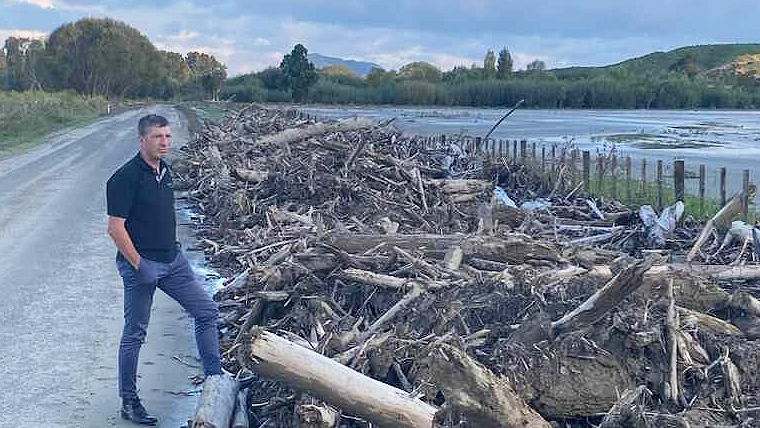
This week we are joined by Pania King to discuss her role in the flood response and recovery from the East Coast floods.
She wears many hats as part of a strong farming family in the region. When it comes to mahi and mahi tahi in Tairāwhiti where she lives, she is part of the Rural Support team responding to the recovery needs after the recent flood event.
I asked her about pine tree pollution and impact slash has had through this flood event, and her thoughts on pine trees in general. She confirms the wellbeing of their farmers and community members is a concern.
“When you add the component of slash and the devastation that slash has brought to us, not just Gabrielle, but in the past we need to look at how on March the eighth in 1988 when Bola (Cyclone Bola) hit us. We had a plan to stabilise and look at land use within Tairāwhiti, and I suppose this is a runoff affect. Because it's harvesting time of all these pine trees. So part and parcel of the devastation that these cyclones and flooding events and so forth have bought to us, slash plays a big part in that.”
“I do think that if slash and debris was removed from the normal BAU (business as usual) in foresters, the cost is worn and paid by forestry enterprises, not worn by community at large. But I personally think that it is not good enough to be leaving slash and debris on hills, and then when we've got adverse events, they have pushed (slash) over the boundary fences or foresters into other land uses and destroyed some of the businesses and processes farmers are quite devastated about that. So it's at a higher level that practices and consent should be looked at. And this is just my personal feeling as a farmer. But also looking at the high profit and low cost way of determining land use in Tairāwhiti and actually through Aotearoa, I think should be considered dearly because we need a more sustainable land use to make sure that New Zealanders and our land in New Zealand as utilised in the best way for a more sustainable future for our mokopuna.”
So what is needed in terms of exotic forest and slash management in this country, and who is currently liable for slash? Pania says no one is liable currently. “I think that there needs to be a better process for foresters and a re clean up of what's left on the hills. And actually, the percentage of riparian planting is part of the foresters planting plan, how many meters should they be away from our waterways? There should be no slash left in our waterways. And when we do get adverse events like the one we've just had, I know that any form of tree was not going to withhold or stand after looking at the volumes of water that came down those major waterways and tributaries that caused devastation and brought the slash down onto farm lands and so forth. But I would say, if we looked at other uses of land, and we didn't just have the economic return, or the high profit low cost way of determining our land use, I think we can do things a lot better.”
Who is going to pick up the bill on all the pine tree slash that has caused what I would call an environmental catastrophe on the east coast of the North Island? Is it the taxpayer? Is it the farmer? Or is it going to be the forestry industry? For years there have been calls for the forestry industry to be reigned in, the environmental disaster caused by forestry on the East Coast is just one example of why forestry management and the ETS needs changes made. More to come on this.
But for now farmers in the hardest hit areas need support, and there is a call for feed. If you can help with feed it could be the difference of livestock and farming businesses making it through the winter, which is just around the corner. How can you help? Get in touch with Beef+Lamb; they will coordinate any offering you have. Head to their website for contact details. The challenge is real and the problems are only just starting to take effect now.
Listen to the podcast to hear the full story
P2 Steer
Select chart tabs
Angus Kebbell is the Producer at Tailwind Media. You can contact him here.

We welcome your comments below. If you are not already registered, please register to comment
Remember we welcome robust, respectful and insightful debate. We don't welcome abusive or defamatory comments and will de-register those repeatedly making such comments. Our current comment policy is here.